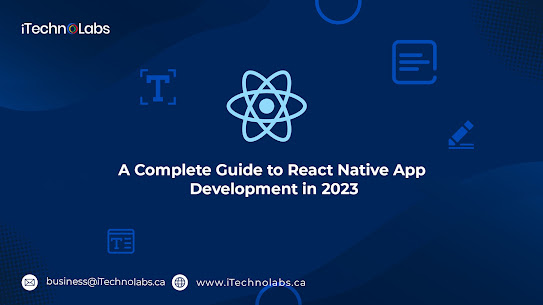Quickly Converting Your Mobile App to React Native App: Steps and Considerations
In the fast-paced world of mobile app development, businesses often face the challenge of expanding their app's reach across multiple platforms. Converting your existing mobile app to React Native App can be a game-changer, providing cross-platform compatibility, code reusability, and accelerated development. iTechnolabs is a trusted name in mobile app development and will guide you through the steps and considerations for swiftly converting your mobile app to React Native.
Step 1 Evaluate App Compatibility and Scope: Before diving into the conversion process, it's essential to evaluate the compatibility of your existing mobile app with React Native. Consider the complexity of your app's features, integration with platform-specific APIs, and any limitations or challenges that may arise during the conversion. Assessing the scope of the conversion will help you set realistic goals and expectations for the project.
Step 2 Plan the Conversion Strategy: Create a well-defined plan and roadmap for the conversion process. Identify the key components and features to be converted first, ensuring they align with your business priorities. A phased approach is often recommended, allowing for iterative development, testing, and refinement. Breaking the process into manageable chunks will help you track progress and address any issues promptly.
Step 3 Reuse Existing Code and Assets: One of the significant advantages of React Native is its ability to reuse existing code and assets. Identify reusable components, business logic, and assets from your original app. These can be integrated into the new React Native codebase, saving development time and effort. However, it's essential to review and adapt the code to fit React Native's syntax and conventions.
Step 4 Implement React Native Components: Begin implementing React Native components to replace your original app's corresponding screens and functionalities. Leverage the rich ecosystem of pre-built UI components and libraries for React native app development. Keep the user experience consistent by aligning the UI elements with the original app's design guidelines.
Step 5 Test Rigorously: Thorough testing is crucial to ensure the quality and functionality of the converted app. Set up a comprehensive testing strategy, including unit, integration, and user acceptance testing. Use testing frameworks like Jest and Detox to automate the testing process, ensuring reliable and repeatable results. Perform device-specific testing on multiple platforms to verify compatibility and address platform-specific issues.
Step 6 Optimize Performance: Optimizing the performance of your React Native app is key to providing a seamless user experience. Identify and address performance bottlenecks through techniques like code optimization, lazy loading, and efficient data handling. Regularly profile and monitor the app's performance to ensure it meets the desired speed and responsiveness.
Step 7 Platform-Specific Integration: Although React Native offers cross-platform compatibility, certain features may require platform-specific integrations. Utilize native modules to bridge the gap between React Native and native code. It allows you to seamlessly leverage platform-specific functionalities and provide users with a native-like experience.
Step 8 Maintenance and Updates: Once your app is successfully converted to React Native, it's essential to prioritize regular maintenance and updates. Stay updated with the latest React Native releases, security patches, and best practices. Continuously monitor and address any issues arising from platform updates or changes in device configurations.
Conclusion: Converting your mobile app to React Native offers immense potential for expanding your app's reach across multiple platforms and maximizing code reusability. By evaluating compatibility, planning the conversion strategy, reusing existing code, implementing React Native components, testing rigorously, optimizing performance, integrating platform-specific features, and ensuring ongoing maintenance, you can swiftly convert your app to React Native. iTechnolabs is your trusted partner throughout this process, providing expertise and support to ensure a seamless and successful transition. Contact us today to discuss your app conversion requirements and unlock the power of React Native.
.jpg)

.jpg)

Comments
Post a Comment